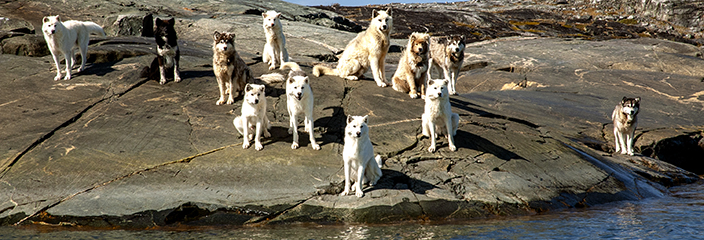By Corey Sandler, Silversea Cruise Consultant
The Portuguese island of Madeira has beautiful beaches, spectacular mountains, abundant sun, a moderate climate, a toboggan ride with no need of ice or snow, and an airport that makes many pilots reconsider their occupation.
Madeira is part of an archipelago in the north Atlantic Ocean about 522 kilometers or 326 miles north of the Canary Islands.[whohit]-26MAR2014 FUNCHAL MADEIRA-[/whohit]
The archipelago comprises the major part of one of the two Autonomous regions of Portugal; the other is the Azores to the northwest.


Downtown Funchal, as flowers burst into color for the oncoming Spring. Photos by Corey Sandler
Today, Madeira is a popular year-round resort, drawing about one million tourists per year.
Madeira is currently ranked the second wealthiest region in Portugal, after Lisbon, with a GDP per capita of 104 percent of the European average.


The Cathedral of Funchal, and the main shopping and dining street. Photos by Corey Sandler
Even before the great expeditions began to use Madeira as a stopping-off point on their way to the New World, it was used in commerce to and from Europe.
Among the sailors who used it as a base was Christopher Columbus who lived for a while with his first wife and child on the lesser island of Porto Santo in Madeira.
As Portugal, and by extension, Madeira began to grow in wealth the island attracted attacks by pirates and privateers. And we’re not just talking about small freelancers.

Terraced farms high in the hills. Some of the farms grow grapes for sweet Madeira wine. Photo by Corey Sandler
In September of 1566 French corsairs under the command of Bertrand de Montluc departed from Bordeaux with a force of 1200 men, on three main ships and eight support craft. The corsairs landed on Madeira and marched toward Funchal and laid siege to the city, which eventually fell.
The following year, the Portuguese decided to install a better defense, including fortresses and other installations. Better protected, Funchal became an important stop-over for caravels travelling between the Indies and the New World.


Up in the hills above Funchal, a dramatic landscape with roads not for the faint-of-heart. Photos by Corey Sandler
Just as an aside, in February of 1815, one of the great naval battles of the War of 1812 took place just off the coast of Madeira. The War of 1812 was essentially a re-ignition of the Revolutionary War fought between the American colonies and Great Britain.
The USS Constitution, one of the first ships of the U.S. Navy and now better known by her nickname of Old Ironsides engaged two smaller British ships, the HMS Cyane and HMS Levant. The American vessel carried 52 guns and 451 men and crippled both British vessels.
None of the three captains had any way of knowing that the War of 1812 had ended three days earlier.
After his wartime service as Prime Minister and before returning to office in 1951, Winston Churchill discovered Madeira for himself. He favored a small fishing village called Câmara de Lobos—Wolf’s Den—about 5 kilometers or 3 miles from Funchal, as a place to paint.

Camara de Lobos, a favorite setting for painting by Britain’s Winston Churchill. Photo by Corey Sandler
The town has a lovely bay surrounded by banana plantations, vineyards, and other vegetation on the hills. And Churchill generally chose to stay at a hotel called Reid’s Palace. The atmosphere at Reid’s has changed little since the hotel opened in 1891, even though it is now part of the Orient-Express Hotels chain.
If you arrive by boat, as Churchill did for his visit in 1950, a lift carries you up from the hotel’s private bathing pier. In the hotel lobby you can see old photos of British and European elite who came to visit.

Sea cliffs east of Funchal on Madeira. Photo by Corey Sandler
Now, as I said, Madeira is a generally temperate place. You’re not going to find snow and ice on a groomed toboggan run.
In fact, you’re not even going to find a real toboggan run. Just some twisty-turny streets. With cars and trucks and potholes.
For more than a century, people have used toboggans for the quick way down the hill to Funchal. The Carro do Monte toboggans are made of wicker, with wooden runners.
They are guided—not really driven—by a pair of carreiros, dressed in white with straw hats. They’ve done this before, but you’ve got to marvel at their success rate.
All photos copyright by Corey Sandler. All rights reserved. To purchase a copy, please contact the author.
Henry Hudson Dreams and Obsession: The Tragic Legacy of the New World’s Least Understood Explorer (Kindle Edition)
Now available, the revised Second Edition of “Henry Hudson Dreams and Obsession” by Corey Sandler, for the Amazon Kindle. You can read the book on a Kindle device, or in a Kindle App on your computer, laptop, tablet, or smartphone.
Here’s where to order a copy for immediate delivery:
http://www.amazon.com/dp/B00IA9QTBM












